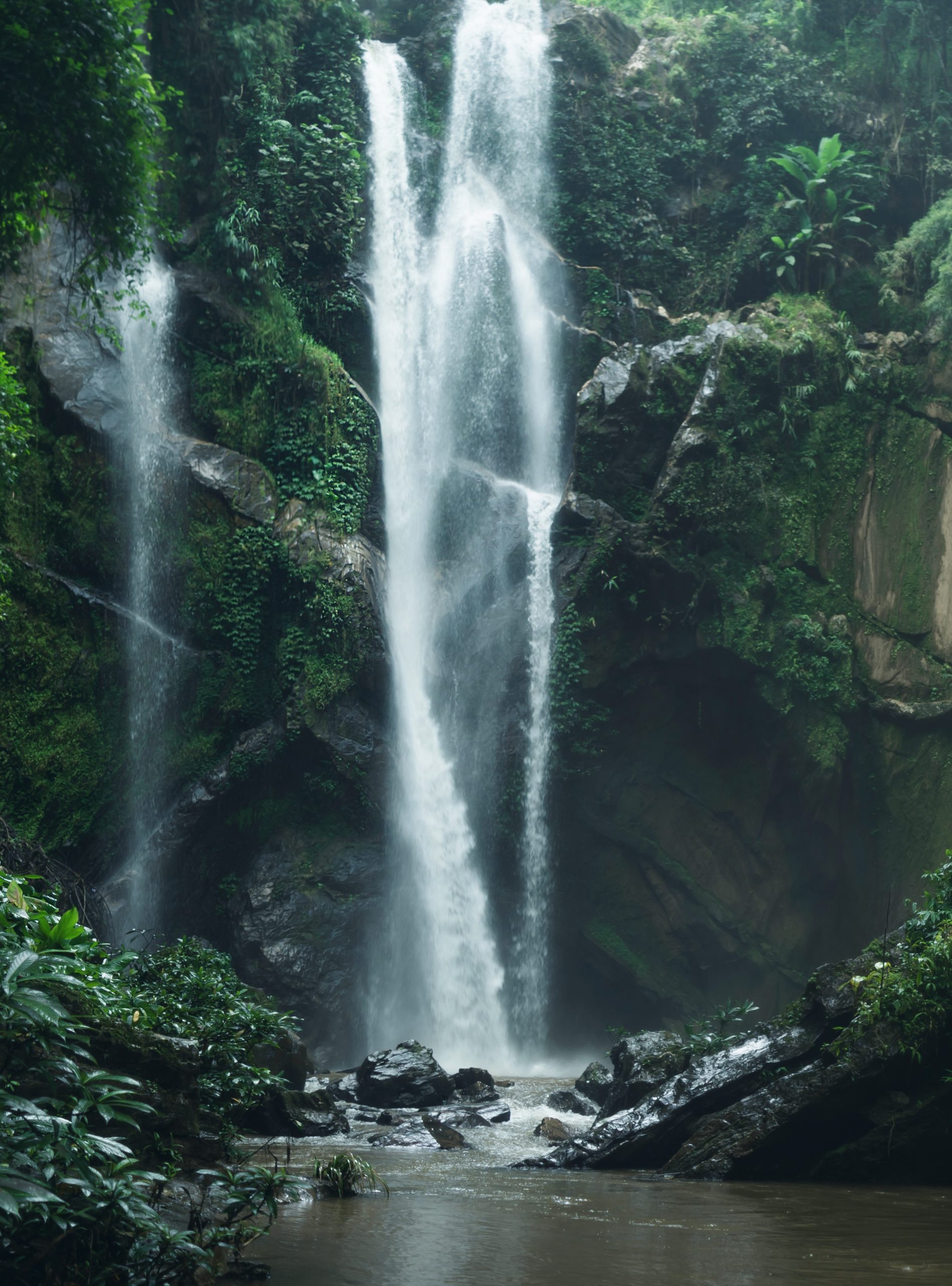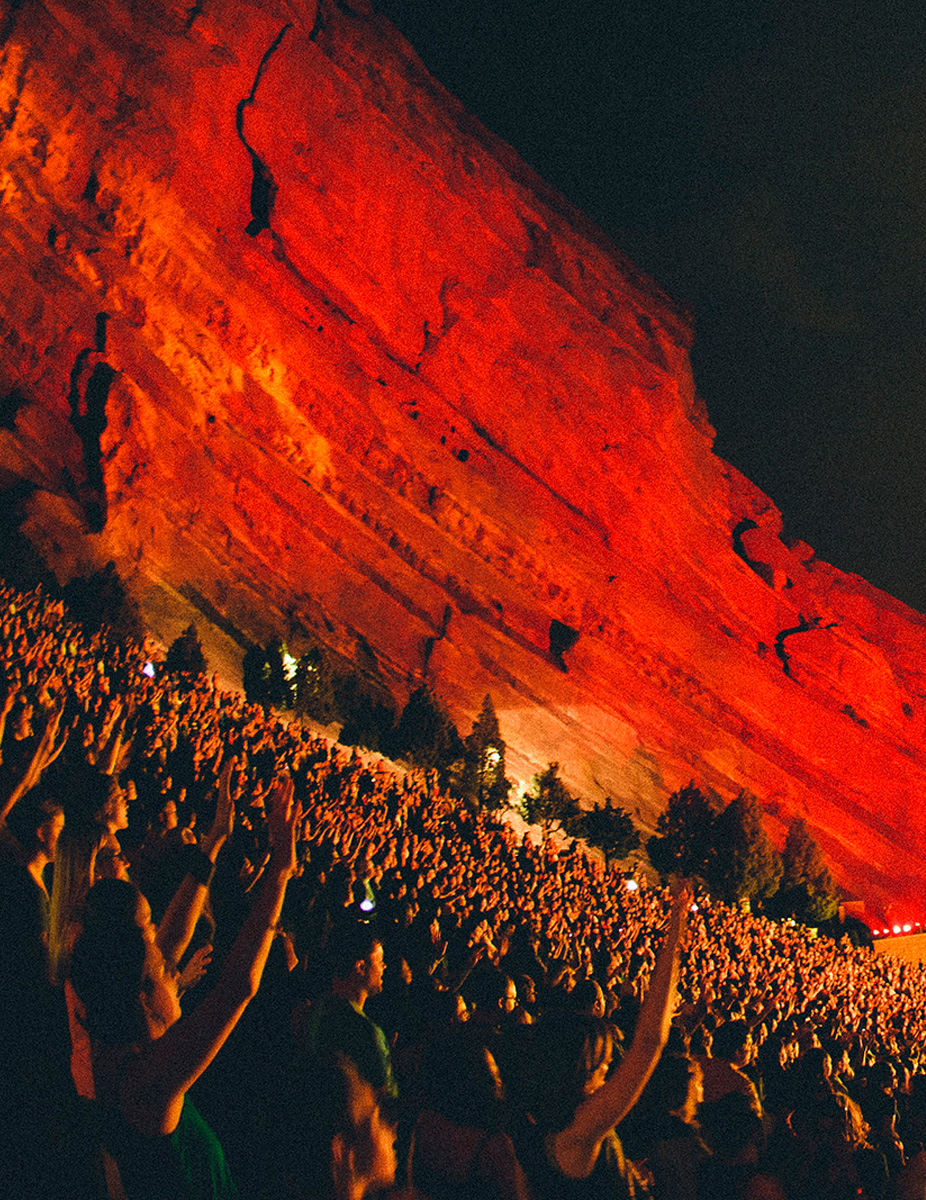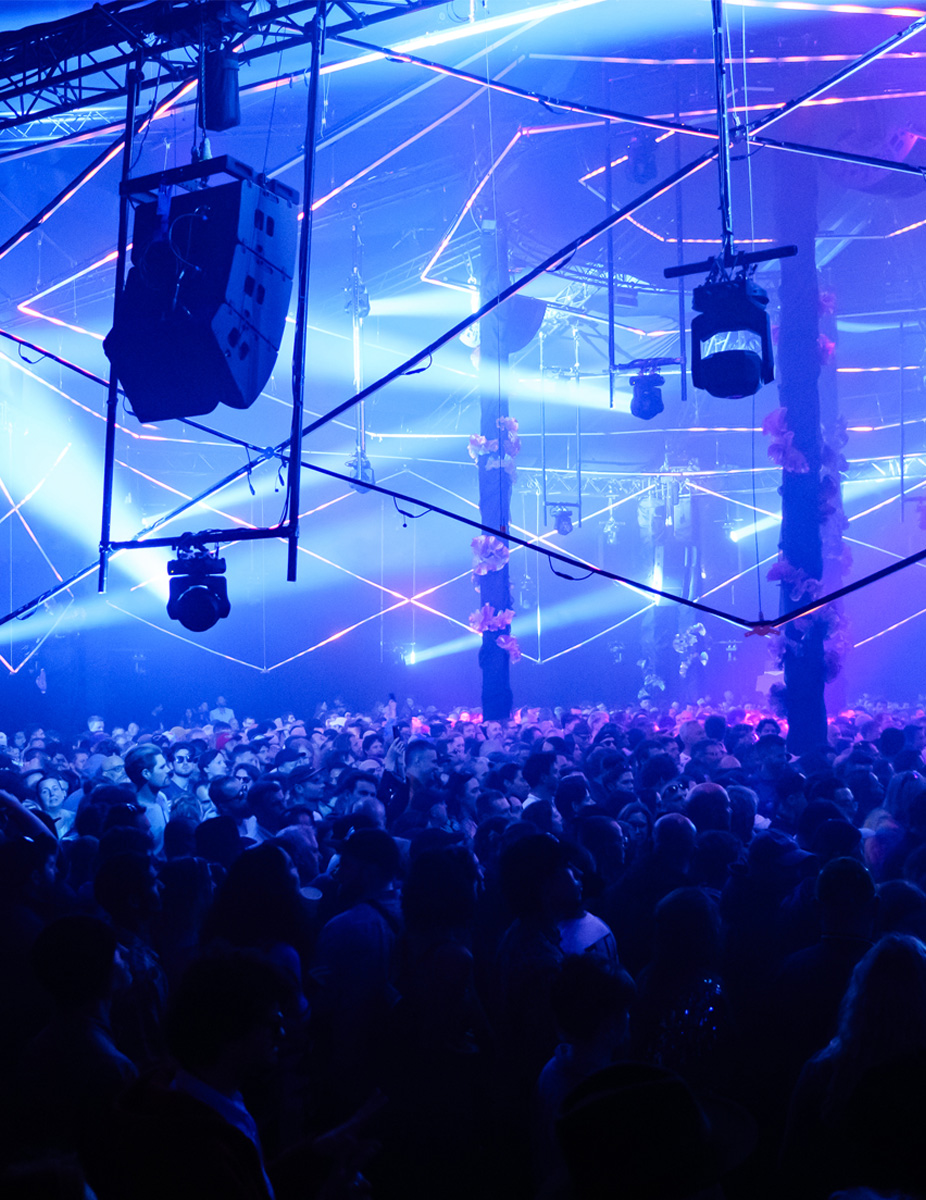Article
Polygon’s Powerful Immersive Experiences Are Grounded in The Artistry
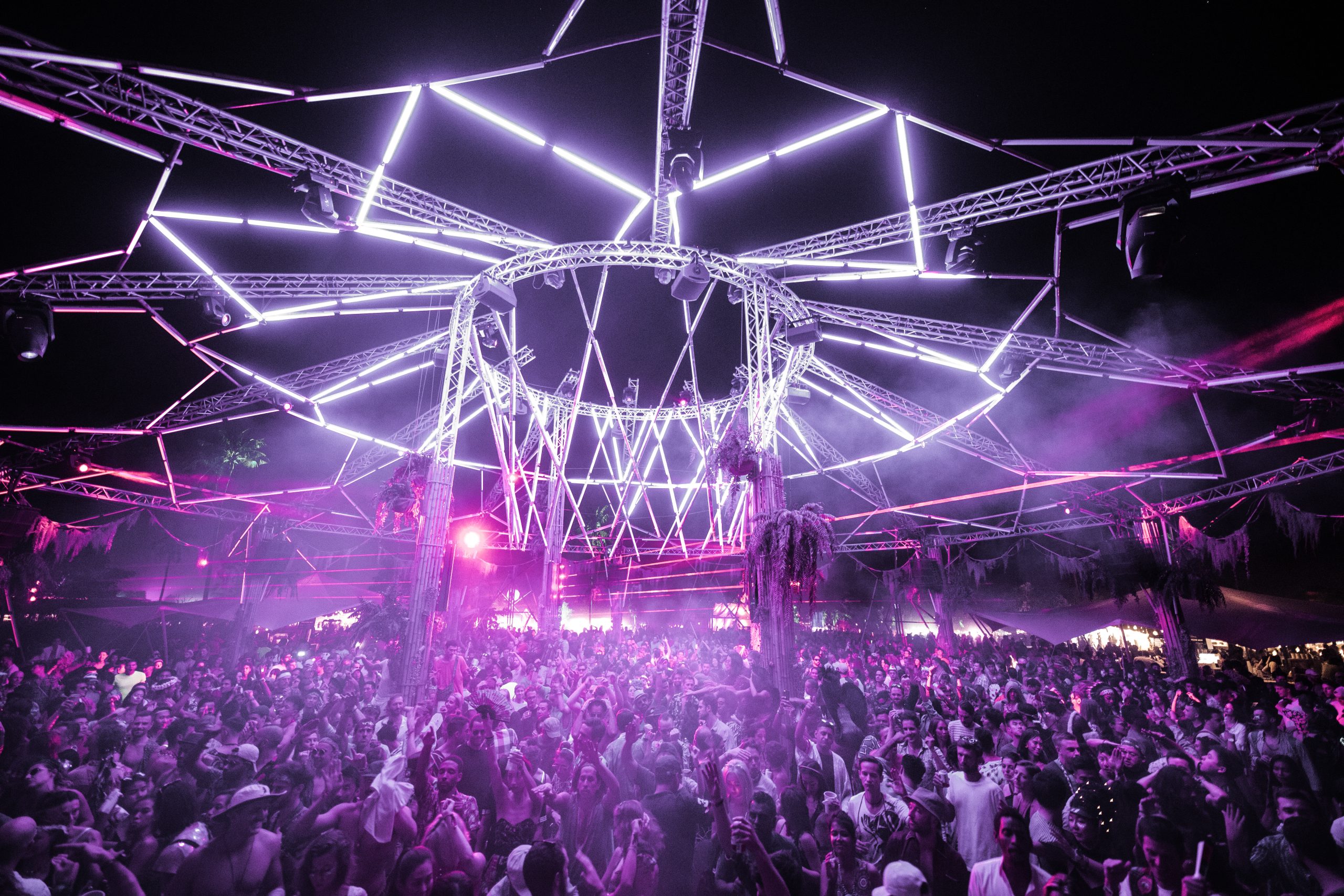
There are live music events and then there are transformative live sound experiences. Polygon is the latter. In 2017, a group of technology-savvy music enthusiasts came together to form Polygon, an artistic business endeavor with the aim of offering music lovers extraordinary spatial audio experiences in a unique stage design. Using L-Acoustics L-ISA sound technology and other creative tools, they were able to do just that. Polygon is the brainchild of founders Archie Keswick, Nico Elliott and Adam Nicholas. Together they have created one of the most multi-sensory, immersive user journeys currently on the music scene..
A Platform for an Eclectic Array of Gifted Storytellers
From its hemispherical dome-shaped 360-degree sound stage containing speakers at every angle, to the music-synched lighting, and scent dispersion, Polygon is truly a unique audio experience. But at the heart of this experience are the cutting-edge artists it draws.
At Polygon Live LDN, Polygon’s UK debut taking place between 2 and 4 May 2025, the team has curated a talented group of emotionally evocative artists. For example, musician Jon Hopkins’ ambient, electronic music is perfectly paired with the Polygon arena. Grammy Award winner Arooj Aftab’s blend of jazz, folk, ambient, minimalism, western, and South Asian classical music lends itself beautifully to the immersive experience. Electronic and techno multidisciplinary artist and producer Max Cooper’s mixes become magical, pulsating to Polygon’s synchronized lighting design. Composer, producer, and musician Nitin Sawhney, whose classical guitar skills and narrative music often transcend cultural barriers, brings his storytelling to life on the Polygon stage. And electronic producer and audiovisual artist, Halina Rice crafts a performance that feels ideal for spatialization.
Indeed, keeping the sound and artistry of the performers aligned with Polygon’s ethos and essence is important to its founders. And just as important for Nicholas and his partners is facilitating an environment conducive to bringing the artists’ vision to life. Nicholas says, “We don’t consider ourselves promoters even though we host events. We consider ourselves musicians, engineers, and friends of creatives, moving towards this goal of bringing music to life. And with that approach everything sounds different in the end.”
Bold Innovation in Art and Technology
Polygon places so much importance on the artists and performances that it meets with artists ahead of time to ensure their music is properly prepared. This usually takes the form of in-studio sessions in L-Acoustics’ studio in London, but has even been undertaken on-site at festivals, including Wonderfruit festival in Thailand.
This innovative setup enables Polygon to perform spatialization with its performing artists before the soundcheck, allowing them to fine-tune the audio experience. The artists can then take the stage and deliver their live sound performances, ensuring a seamless transition between the pre-production and live performances. This tailored approach, designed specifically to bring the professional sound system to artists, prioritizes their comfort with the venue and the technology. Polygon recognizes the significance of creating an environment that fosters a sense of ease and enthusiasm among its artists, as their disposition directly influences the perception of their music by thousands of attendees. Nicholas believes as more artists perform at spatialized audio venues, more venues will spatialize. He says, “From what I’ve heard and seen, there are more people interested in spatial venues because they offer the best sounding concerts and have the happiest artists. And people going to those performances have the most memorable experiences.”
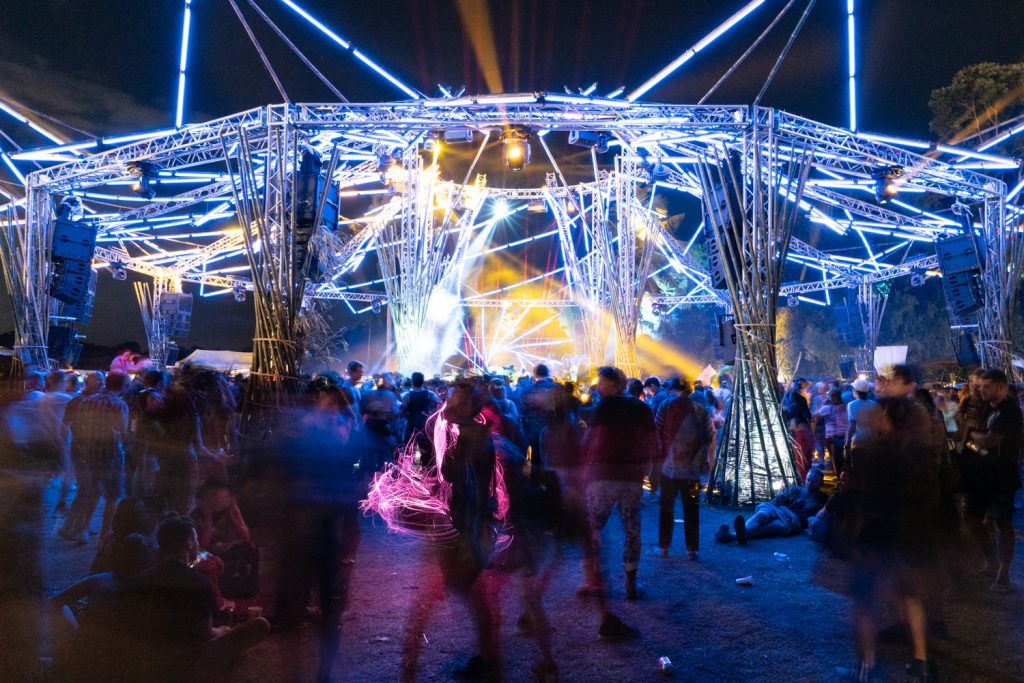
In an Immersive Audio Experience, Live Sound is Ultimately Paramount
Ultimately, it’s the performances that are the crux of the experience. The visuals, the scents, and other sensory elements are vital, yes, but they are meant as enhancements for the music. As Nicholas notes, “Visuals are such an important part of music performances these days. But I think a lot of us have had the experience of going to music festivals and concerts and being bombarded with quite heavy visuals, things to look at that make you stop listening and stop moving. Polygon doesn’t want the other creative elements to overshadow the music or pull you out of the live sound. The ‘non-sounds’ shouldn’t stop you from moving your body. They shouldn’t stop you from closing your eyes and feeling that bass. They should accentuate and work together with the sound.”
But when it comes to the composition of the experience, Polygon is about experimentation and evolution. What’s right right now may not work further down the line. According to Nicholas, Polygon wants something that flows beautifully and is well curated. “I’m not sure whether we want to stick to any pre-existing formats. We’d rather just follow what works and see where we go.”
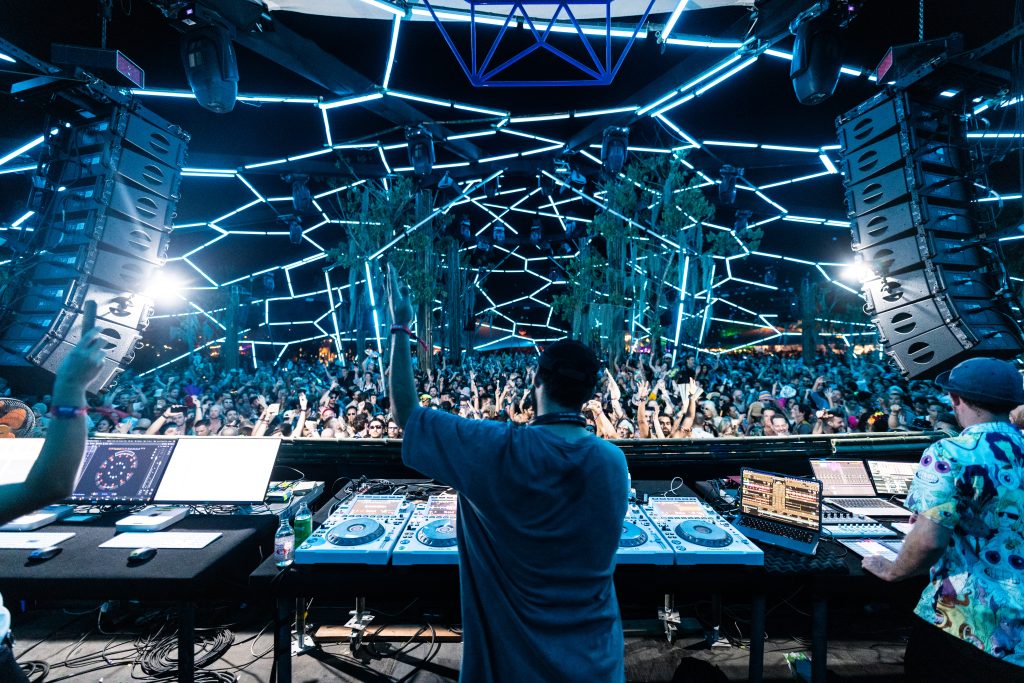
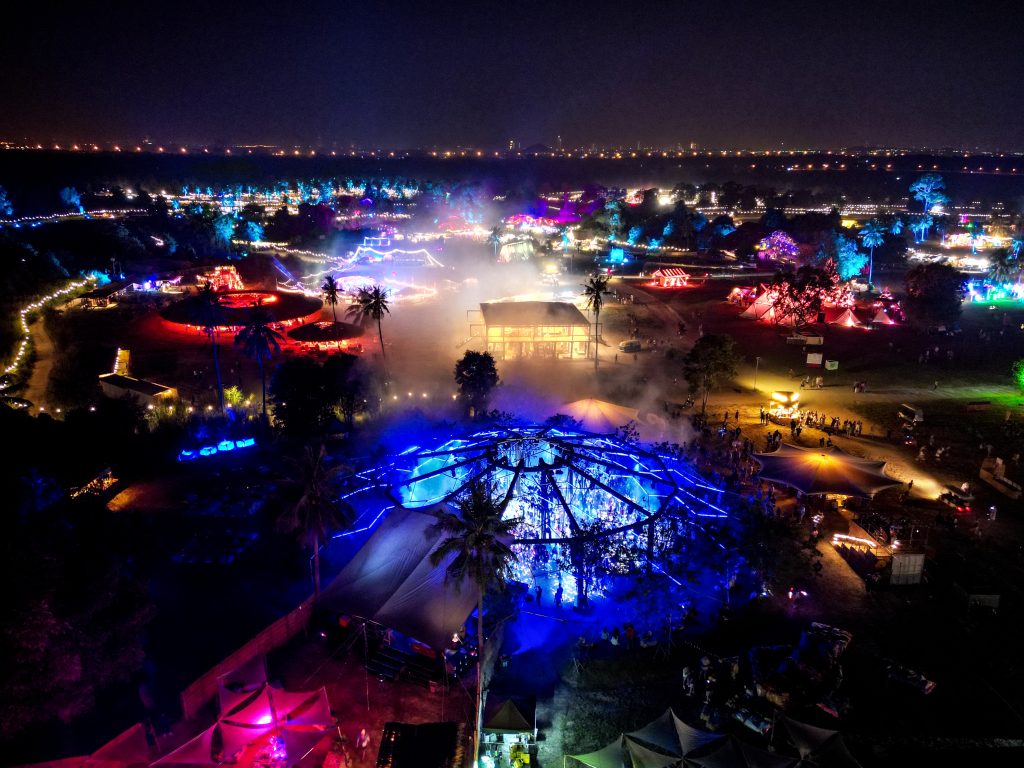
To learn more about Polygon, including information about their upcoming events, please visit https://www.polygon-productions.com.
More from L-Acoustics
Technologies, solutions, news, and stories related to this article.
